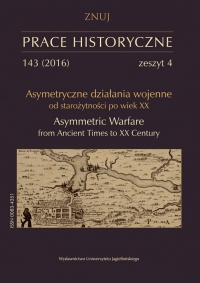Tożsamość narodowa żołnierzy armii austro-węgierskiej
National identity of Austro-Hungarian soldiers
Author(s): Krzysztof BaczkowskiSubject(s): Ethnohistory, Military history, Recent History (1900 till today), 19th Century, Politics of History/Memory, Politics and Identity, Identity of Collectives
Published by: Wydawnictwo Uniwersytetu Jagiellońskiego
Keywords: Galicia; military; identity;
Summary/Abstract: In the Austrian army (Austro-Hungarian army) in the second half of the 19th century the question of the national identity of officers and soldiers belonged to the most important problems of the Habsburg monarchy. Officially proclaimed army transnational password (“imperial”), in which the officers and soldiers of different nationalities and different faiths were fully-fledged and united by the idea of a common state, which was the personification of the emperor. The privileged role of the German language in the army had technical, not ideological reasons. In fact, by the second half of the 19th and early 20th century a dispute was waged among the generals and politicians on whether the army was to be transnational, multinational, or German. In the context of transnational password Galician, the “imperial” army was popular especially among the peasant population. The “imperial” identification of the rural population was strengthened by the social conflict on the axis: noblemen (Polish) – peasants (“imperial”). Military service was associated with an increase in the standard of living by most of the recruits and with prestige in rural communities. These aspects further reinforced the “imperial” identity of the recruits. With the development of the modern sense of national consciousness in the late 19th century this identity was modified in the case of the Polish. During World War I the “imperial” identity of the Galician recruits was eventually weakened by failures at the front, the economic crisis and the collapse of state authority. In 1918 it was only a historical memory.
Journal: Prace Historyczne
- Issue Year: 144/2017
- Issue No: 2
- Page Range: 357-370
- Page Count: 14
- Language: Polish

